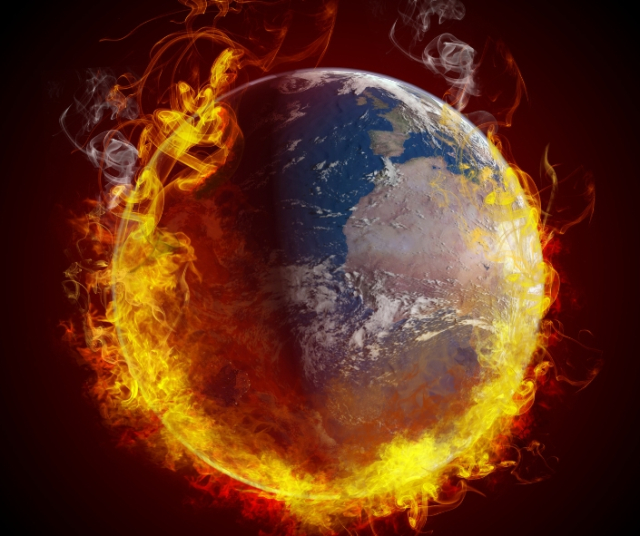Global warming is a phenomenon that has been at the center of global attention for decades. It has become one of the most urgent and pressing problems facing humanity in the 21st century. This article will explore in depth what global warming is, its causes, consequences and possible solutions.
What is global warming?
Global warming is a complex phenomenon that has captured the world's attention in recent decades. At its core, it refers to the gradual increase in the Earth's average temperature, which has profound and widespread consequences on natural and human systems. This increase in temperature is mainly due to the accumulation of greenhouse gases in the atmosphere, which act like a blanket around the planet, trapping heat from the sun and increasing global temperatures.
The main culprits for this increase in greenhouse gas levels are human activities, especially the burning of fossil fuels such as coal, oil and natural gas for power generation and transportation. Deforestation also plays a significant role in reducing the Earth's ability to absorb CO2 through tree photosynthesis.
This phenomenon has profound and widespread consequences. Changes in weather patterns, such as an increase in the frequency and intensity of extreme weather events, are just the beginning. Melting glaciers and ice caps are raising sea levels, threatening coastal communities and marine biodiversity. Furthermore, the displacement of ecosystems and the alteration of the life cycles of species are causing cascading effects on natural systems.
Causes of Global Warming
Burning Fossil Fuels: The main cause of the increase in CO2 in the atmosphere is the burning of fossil fuels such as coal, oil and natural gas for energy generation, transportation and industrial processes.
Deforestation: Large-scale tree cutting contributes to increased CO2, as trees absorb this gas during photosynthesis. Deforestation reduces the Earth's ability to absorb excess CO2, contributing to global warming.
Agriculture and Livestock: Intensive agriculture and livestock raising also emit large amounts of greenhouse gases, especially methane, through processes such as enteric fermentation and manure management.
Industrial Activities: Industrial production and use of chemicals also release greenhouse gases, such as carbon dioxide and nitrogen oxides, thus contributing to global warming.
Consequences of global warming
Climate Change: Global warming causes significant changes in the Earth's weather patterns, including an increase in the frequency and intensity of extreme weather events such as storms, droughts and floods.
Displacement of Ecosystems: Rising temperatures and changes in precipitation patterns are leading to the migration and displacement of entire ecosystems, endangering biodiversity and the survival of many species.
Melting Glaciers: Global warming is causing rapid melting of glaciers and ice caps around the world, contributing to sea level rise and threatening coastal communities.
Impact on Agriculture: Changes in climate are affecting agricultural productivity by altering crop growth cycles, increasing the incidence of pests and diseases, and reducing the availability of water for irrigation.
Solutions to Global Warming
Transition to Renewable Energy: Adopting renewable energy sources, such as solar, wind, and hydroelectric, can dramatically reduce greenhouse gas emissions associated with power generation.
Energy Efficiency: Improving energy efficiency in buildings, transportation and industry can significantly reduce energy consumption and CO2 emissions.
Forest Conservation: The protection and restoration of forests and rainforests is crucial to absorb CO2 from the atmosphere and preserve biodiversity.
Sustainable Agriculture: Adopting sustainable agricultural practices, such as conservation agriculture and crop rotation, can reduce greenhouse gas emissions and improve the resilience of agricultural systems to climate change.
Global warming is a global challenge that requires urgent and coordinated action at the international level. Mitigating its effects will require fundamental changes in the way we produce and consume energy, manage our natural resources and adapt to the inevitable impacts of climate change. With strong commitment and decisive action, we can meet this challenge and create a more sustainable and resilient future for future generations.
